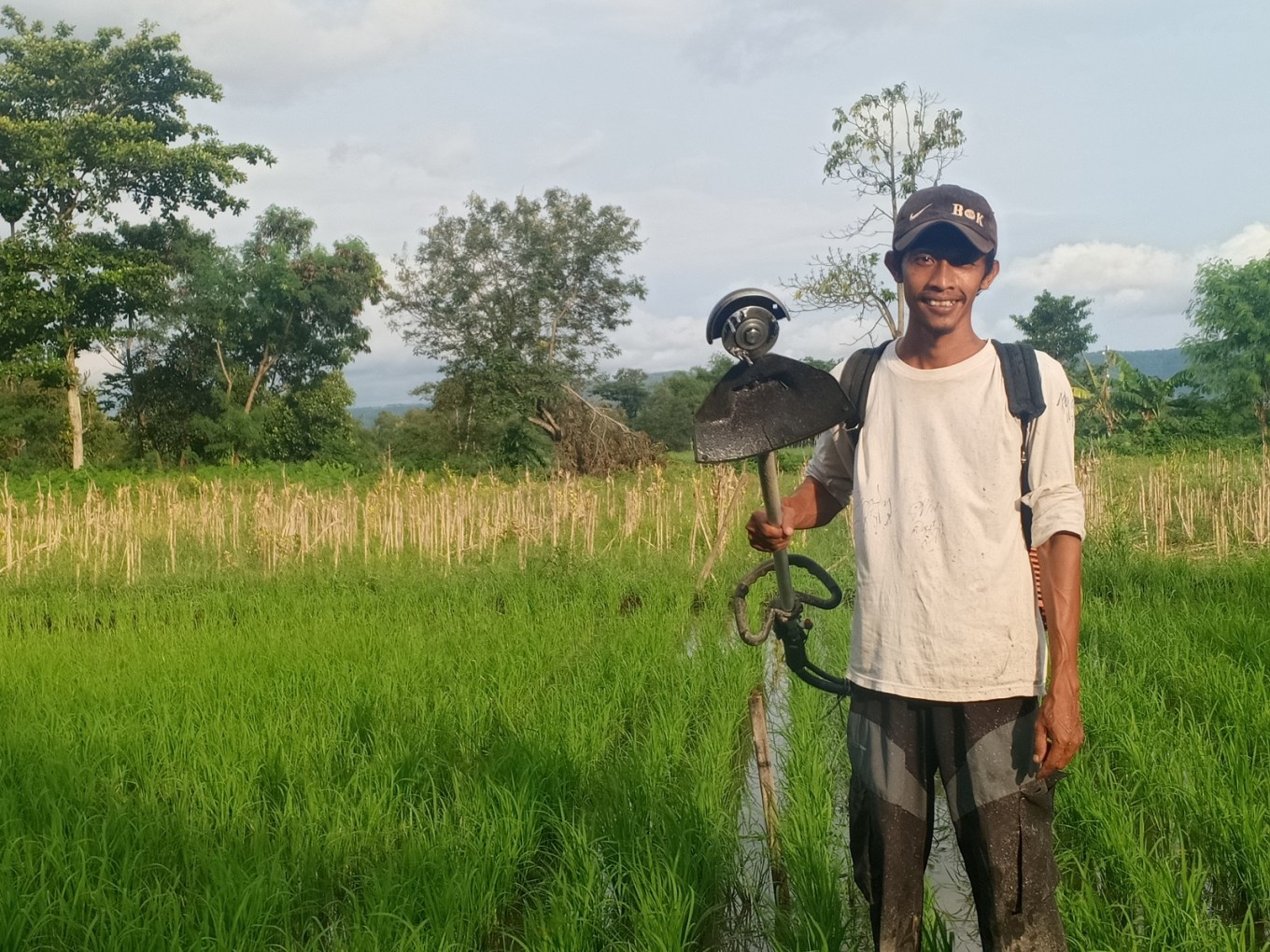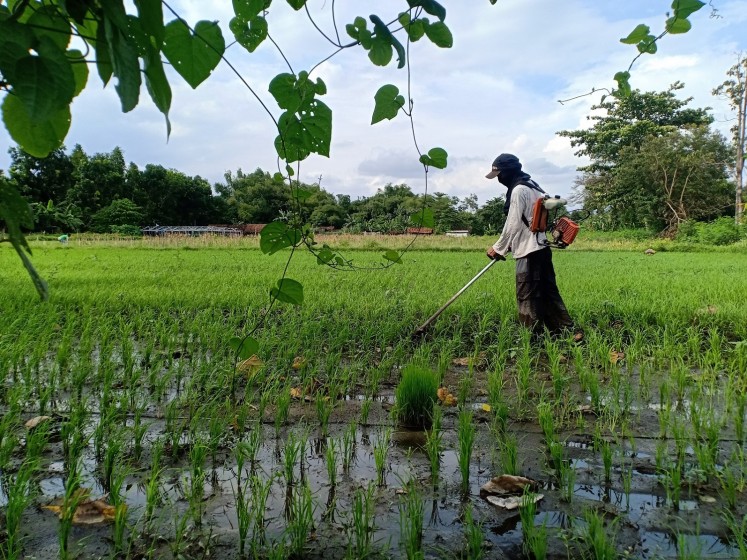Popular Reads
Top Results
Can't find what you're looking for?
View all search resultsPopular Reads
Top Results
Can't find what you're looking for?
View all search resultsYoung law graduate finds a simple farmer's life a happy life
A graduate of Indonesian Islamic University’s (UII) School of Law, Miftahul has for the last three years earned a living as a farmer, an occupation that not many youths in Indonesia want to pursue.
Change text size
Gift Premium Articles
to Anyone
I
t was early afternoon and the sun was no longer boiling hot when Miftahul Abdurrakman, 30, started clearing weeds from his rice field.
Using a lawn mower, he cut the weeds that grew among his 13-day-old rice plants but left the debris there to decompose, thus providing extra organic fertilizer for his crops.
Miftahul implements a semi-organic farming method, meaning he uses only a small amount of pesticide to help the plants grow in their early stages. The rest of the time he uses homemade organic fertilizer.
“I don’t want to produce rice that contains pesticide as it can cause many diseases,” Miftahul recently told The Jakarta Post.
A graduate of Indonesian Islamic University’s (UII) School of Law, Miftahul has for the last three years earned a living as a farmer, an occupation that not many youths in Indonesia want to pursue.
The results of a 2018 survey released by the Statistics Indonesia (BPS) revealed that only 191,000 out of some 2.7 millions family heads aged between 25 and 34 years earn a living from farming. In total, there are 33.5 million farmers across the country.
Miftahul said he chose to become a farmer to help sustain the country’s food production and prevent land from being developed into a sea of buildings.
He said his ancestors, including his parents, were all farmers. Yet, of the four siblings in his parents’ family, he alone has decided to take up the line of work.
Unlike his ancestors, who used traditional farming methods, Miftahul is a modern farmer and has pioneered the implementation of agricultural mechanization in his village of Timbulharjo in Sewon district, Bantul regency, Yogyakarta.
“There are currently at least five other young farmers in my village who also implement agricultural mechanization,” he said, referring to the use of machinery in agriculture such as lawn mowers and other equipment.
Sitting by his rice field, Miftahul recounted how he gained his knowledge of agricultural machinery from the internet. He also recalled that when he was a university student, he often snuck into the agriculture class at Pembangunan Nasional University (UPN) Yogyakarta.
Read also: Empowering our farmers
With the help of a worker, Miftahul cultivates 10,000 square meters of land that he rents, of which 9,000 square meters is used to grow rice while the rest is used to breed catfish. (JP/Bambang Muryanto)Miftahul is one of only a handful of farmers who do not have their own land but are confident that agriculture can be a promising livelihood.
With the help of a worker, he cultivates 10,000 square meters of land that he rents, of which 9,000 square meters is used to grow rice while the rest is used to breed catfish.
With the use of agricultural machinery, he can control his expenses and overcome the difficulties of finding workers.
To earn more profit, Miftahul does not sell his harvests unhusked but instead mills the rice first on his own before selling his produce online through social media.
“I can sell a kilogram of rice for between Rp 11,000 [less than US$1] and Rp 12,000, higher than the market price of around Rp 8,500 per kg,” he said.
He added that with the use of machinery, from 1 hectare he could harvest 3 tons of unhusked rice every 85 days. If the rice is sold for Rp 11,000 per kg, he said, he could earn Rp 9 million per harvest.
“I have no rice left at the moment. It’s all sold out,” he said, adding that put all the money he earned from rice into savings. To support his daily expenses, he uses the revenue from his catfish sales, which he harvests once every two weeks.
“I’m happy living as a farmer. I can support my family and save money for my children’s school fees.”
He expressed confidence that many other youths would become interested in farming if the government created good market conditions for agricultural produce, such as by buying all unhusked rice produced by farmers and ending rice imports.
“Unfortunately, rice is still a very political product. If the price increases just a bit, it will promptly be decreased by importing rice to prevent chaos,” explained Miftahul. (yun/kes)












